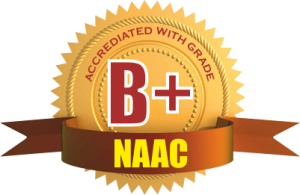Pest Control Policy 2021
Introduction:
Jagran College of Arts, Science & Commerce is committed to providing a safe, healthy, and conducive environment for its students, faculty, staff, and visitors. The institute recognizes the
importance of effective pest management in achieving this goal while minimizing the use of pesticides and protecting the environment. This Pest Control Policy outlines our approach to pest management and sets forth guidelines for prevention, intervention, and continuous improvement.
Policy Statement:
- Prevention:
College prioritizes proactive measures to prevent pest infestations. This includes regular inspections, proper sanitation practices, waste management, and maintenance of buildings and grounds to minimize pest attractants and entry points.
2.Integrated Pest Management (IPM):
– The institute adopts an Integrated Pest Management approach, which emphasizes the use of multiple strategies such as monitoring, habitat modification, biological control, and targeted pesticide applications as a last resort. IPM focuses on long-term solutions and reducing reliance on chemical pesticides.
– Organic substances, such as botanical extracts and microbial agents, are utilized as part of our IPM program to control pests in an environmentally friendly manner.
- Responsibilities:
– The Facilities Management Department is responsible for overseeing pest management activities on campus, including conducting regular inspections, coordinating pest control services, and implementing IPM strategies.
– All members of the institute community are encouraged to report pest sightings or concerns promptly to the Facilities Management Department.
- Pesticide Use:
– Pesticides are used judiciously and in accordance with applicable regulations and best practices. Non-chemical methods are preferred whenever feasible.
– Only trained and licensed pest control professionals are authorized to apply pesticides on campus.
– Prior notification will be provided to affected individuals or departments before pesticide applications, and precautions will be taken to minimize exposure risks.
- 5. Education and Awareness:
College will provide educational resources and training opportunities to raise awareness about pests, their behavior, and prevention strategies.
– Information about the institute’s pest management policies and procedures will be disseminated to students, faculty, staff, and relevant stakeholders.
- 6. Collaboration:
– The institute will collaborate with reputable pest control service providers, regulatory agencies, and other institutions to share knowledge, resources, and best practices in pest management.
- Evaluation and Improvement:
– The effectiveness of pest control measures will be regularly evaluated through monitoring, feedback mechanisms, and inspection reports.
– Feedback from the institute community will be solicited and considered in the review and enhancement of the pest control policy and procedures.
- Compliance:
College will comply with all applicable laws, regulations, and guidelines related to pest control, pesticide use, and environmental protection.
Conclusion:
College is committed to maintaining a healthy and pest-free environment conducive to learning, research, and work. This Pest Control Policy reflects our dedication to responsible pest management practices, including the use of organic substances, and continuous improvement in line with our institutional values and sustainability goals.
This addition emphasizes the institute’s commitment to environmentally friendly pest management practices by incorporating organic substances into its Integrated Pest Management program.
This policy is implemented w.e.f. July 1st2021 and published on the college website i.e. www.jagrancollege.ac.in.



